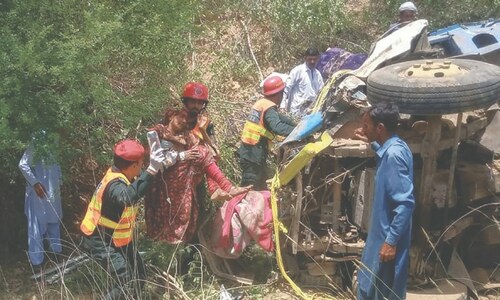COLOMBO, Sept 16: Home to some 1.5 billion people, South Asia is paying a high price to access the Internet as service providers have been slow to deliver cheaper broadband connections, analysts say.
The region has embraced telephones, mobile phones and computers and India has a flourishing software and outsourcing industry, noted industry watchers at the first South Asia Broadband Congress said here earlier this month.
But South Asia has lagged behind in hopping onto the broadband bandwagon, observed Sanjay Gupta of India’s Midas Communication Technology.
“There is not enough local language content and affordable connections.
Currently, broadband penetration is very low -- estimated to be less than three per cent in the region -- and it boils down to cost,” Gupta said.
Home users in Pakistan pay the most in the region, with annual broadband prices of 2,660 dollars, followed by Bangladesh at 2,066 dollars, according to Colombo-based LIRNEasia, a regional telecom think-tank.
The same service costs 242 dollars in Sri Lanka, 223 dollars in India and 112 dollars in Maldives, said researchers at LIRNEasia, who are studying reasons for poor broadband penetration in South Asia.
In March, India logged 40 million Internet subscribers, which included 2.3 million broadband users, according to India’s Department of Telecommunications.
“India needs to target 100 million broadband users by 2015 to connect homes in remote villages. To do that, operators must bring down prices,” said Professor Ashok Jhunjhunwala of the Indian Institute of Technology.
“Rural broadband expansion throughout South Asia will help in education, provide remote healthcare and promote call centres in villages so computer literate people will not be forced to migrate to urban areas,” he said.
However, telecommunications operators need to cooperate to make broadband economically viable in developing countries, said Mallikarjun Rao, a director at Canadian telecoms giant Nortel Ltd.
“To leapfrog to the next generation, dominant operators must allow other operators access to its telephone exchanges -- so-called local loop unbundling,” Roa said.
“The local loop is the crucial link between telephone exchanges and homes,” he said.
Unbundling the local loop or sharing the copper wire allows other operators to plug their equipment into the telephone exchange and offer faster services.
Holding back the development of broadband in Sri Lanka, for instance, is the fact that the country only allows the dominant operator, state-run Sri Lanka Telecom, to lay copper.
There are just under 40,000 broadband customers among Sri Lanka’s 19.5 million inhabitants, according to Sri Lanka Telecom.
Figures for broadband users in other South Asian countries were not available but officials at the conference said penetration was low.
“Right now, many people don’t have much of a choice when it comes to broadband” as the monopoly on laying wire to homes and offices remains with Sri Lanka Telecom, said Rohan Samarajiva, LIRNEAsia’s executive director.
“There should be more serious policy and regulatory attention for broadband infrastructure in the region, to make services more affordable,” he said.—AFP















































Dear visitor, the comments section is undergoing an overhaul and will return soon.